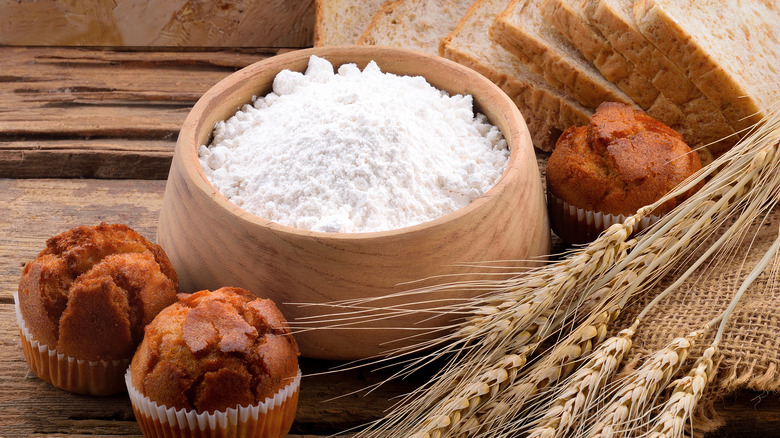The Only Flour You Should Use For Baking Cookies
Picture this: You walk into your house after a long day's work, and you're greeted by the sweet, warm essence of freshly baked cookies. Aa flood of memories from your childhood might even cross your mind as you're sent back to simpler times. There's a scientific reasoning behind this: It's called odor-evoked biographical memory, explains HuffPost.
But what happens when you bite into one of the freshly baked cookies, and it just aren't the same as you remember? It could be because whoever made the cookies didn't use the right type of flour. You'll never want to make this mistake again, especially if you're going to try any new cookie recipes.
Believe it or not, there's one type of flour you should almost always only use when baking cookies to ensure they turn out exactly the way the recipe calls for. If you've ever been confused by items like all-purpose flour, bread flour, and pastry flour, here's which one is best for cookies.
Not all flour is the same
If you find yourself baking a lot of cookies, make sure you're paying attention to the type of flour the recipe calls for. You could be sabotaging your baked goods without even realizing it. While most recipes call for all-purpose flour, this isn't always the case. Using the wrong kind of flour can really change the way your baked goods turn out in texture and look, explains Allrecipes.
All-purpose flour is the most common due to its mid-strength, medium-gluten consistency, explains The Spruce Eats. It's a balance of both hard and soft flours, making it an ideal choice for a variety of baked goods, including cookies, cakes, muffins, quick breads, and biscuits, notes Allrecipes. This is the only flour you should be using when making cookies.
Bread flour, meanwhile, should only be used in breads, rolls, and recipes where you're aiming for a chewy, elastic crumb base. Cake flour is used for — you guessed it — making cakes. The same is true for pastry flour. The medium-protein flour is used to get those tender and delicate pie crusts or flaky consistency on pastries and battered fried foods. All of these specialty flours tend to be more expensive than all-purpose flour, so save them for your more in-depth baking needs.

